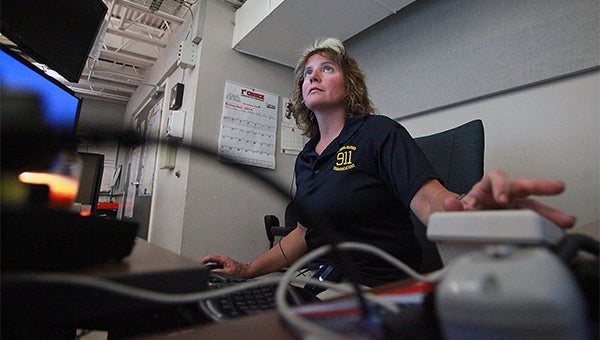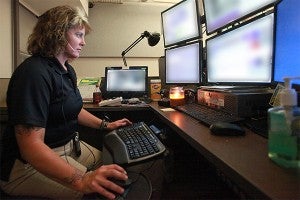What’s your emergency: Dispatcher puts emotion aside to deal with emergency calls
Published 12:21 am Friday, February 27, 2015

When helping those who are dealing with an emergency, 911 dispatcher Tanya Hearn said “you have to be able to disassociate yourself in a personal manner. You have compassion and empathy, but you have a job to do and it’s not going to get done if you put emotions into it.”
Tanya Hearn hasn’t slept in two days. Sitting in front of a half-dozen computer monitors, with a steady stream of calls and scanner chatter coming into her headset, and with two hours down and 10 to go on an overnight shift at the Warren County E-911 Center, she won’t sleep tonight, either.
Not that she wants to.
Taking calls as an E-911 dispatcher and getting people the help they need is what the perky 41-year-old lives for. The sound of the phone ringing is like a shot of coffee injected straight into her veins, although it’d be hard to tell from her calm, steady voice.
“I love to talk. It doesn’t bother me. I’ll talk to a fence post,” Hearn said. “Dispatchers are to be the calming voice in an emergency, even if it’s a (police) officer. You can’t be shy and do this job. In a lot of situations, you have to take control, because people are hysterical. You have to take control to get information to them.”
The dispatcher job is just one of three that Hearn has. She also owns a concrete business, Hearn Concrete Services, and serves as a volunteer firefighter for the Northeast Volunteer Fire Department on Oak Ridge Road.
Hearn, along with her son and daughter, joined the fire department about three years ago and it led to her becoming a dispatcher, she said.

When helping those who are dealing with an emergency, 911 dispatcher Tanya Hearn said “you have to be able to disassociate yourself in a personal manner. You have compassion and empathy, but you have a job to do and it’s not going to get done if you put emotions into it.”
“Being on the fire department side, I’d been in touch with a lot of people on that side. We’re all one big happy family. We work in unison,” she said. “All the people are awesome to work with.”
Hearn estimates she takes about 200 calls in a normal 12-hour shift. Many are fairly routine. During this hour she fielded several hang-up calls, a property owner needing help with someone who left a car in his driveway, and an elderly woman who had fallen and injured herself.
Most of the calls last just a few minutes, until a medical unit or police officer can be dispatched.
“And on to the next one,” Hearn said as she wrapped up a call.
The entire process can be mentally grueling, Hearn said. In a few seconds, she has to ascertain the situation, figure out the appropriate unit to dispatch, and feed as much information to police or firefighters as possible — all while staying calm and listening for verbal clues that could indicate a more serious situation.
“You have to be able to disassociate yourself in a personal manner,” Hearn said. “You have compassion and empathy, but you have a job to do and it’s not going to get done if you put emotions into it.”
The personal touch, being able to help people, is what drives Hearn, however. Whether it’s helping an officer avoid danger or aiding a citizen in need, the adrenaline rush and love of the job will always keep her ready for the next call.
“It’s not the money. I love doing it. I love the people and I love the job. The money comes from concrete,” Hearn said. “We love it. You’re a dispatcher, you love being a dispatcher. I never dread coming to work.”






